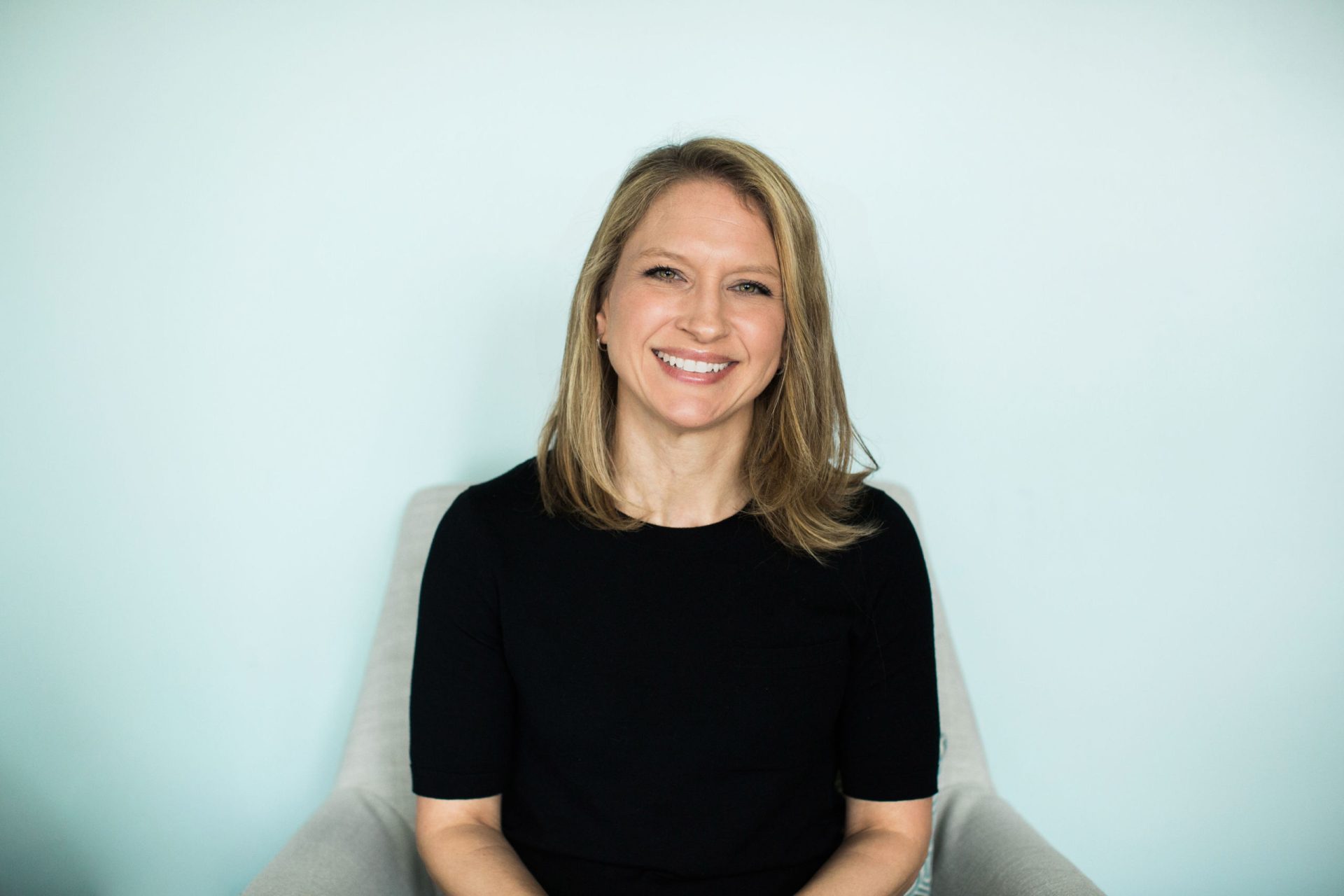
Perinatal Mood Disorders: Podcast Episode #91
Today we talk with Elsa, a therapist at Mindful Counseling in Grand Rapids, Michigan who specializes in perinatal mood disorders. Learn what postpartum anxiety and depression look like, how they are different, and signs to look out for. You can listen to this complete podcast episode on iTunes or SoundCloud.
Kristin: Welcome to Ask the Doulas with Gold Coast Doulas. I’m Kristin, and I’m here today with Elsa Lockman from Mindful Counseling. She’s here to talk to us a bit about postpartum anxiety. Elsa specializes in the following areas: perinatal mood disorders, which includes postpartum depression, anxiety, OCD, grief and loss, eating disorders, and body image issues. She also works with clients dealing with relationship problems, coping with medical illness, trauma and abuse, women’s issues and self-esteem, and mood disorders and anxiety. So obviously, you’re a natural fit working with clients who struggle with everything from eating disorders to anxiety and depression, transitions in their relationships, and expanding their family or having their first child. So today, Elsa, let’s focus a bit on the difference between postpartum depression and anxiety and what women can do if they’re interested in seeking treatment and getting help.
Elsa: Yes, postpartum depression and anxiety can go together. Sometimes women will struggle with anxiety with depression. Sometimes it is separate. Postpartum anxiety and depression can look very different. People classically think of postpartum depression as mothers who don’t connect with their babies, moms who are checked out and can’t get out of bed all day. That’s actually not always the case. Often, women with depression are exhausted and often can’t stop crying. They can’t look, maybe, on the positive side or think rationally. As far as the anxiety, it can come out more in not feeling necessarily down but feeling like you can’t relax; feeling that something bad is going to happen at any time. Having thoughts of something happening to your baby; scary thoughts. Sometimes even flashes of images of very violent things happening or the baby falling, and moms often feel guilty for those, actually, and don’t tell anybody, but they’re actually really important to talk about.
Kristin: I had a friend who was afraid of driving in her car or anyone driving her baby. There can be a lot of, like you said, those intrusive thoughts.
Elsa: Yes, and it’s obsessive sometimes and you can’t get it out of your head. So rationally, you can say, I’m not going to drop the baby going down the stairs. I have the baby in my hands. But it keeps going; it gets hooked, the idea or the image, and then they’ll struggle with almost a loop where it just can’t get out of your head. Or anxiety can present sometimes in something around sickness. No germs. Thinking that my baby is going to get sick; I can’t take her out to the store, and I can’t take her to this house. And how far that goes; I mean, some of these are common sense, and you want to take care of your child, but then how far does it goes? Does it prevent you from doing things that you want to do, or do others notice that maybe this is being a little unreasonable? It seems to be causing you even more anxiety to be thinking some of these things. Another part is that sometimes anxiety can come out as anger. Feeling just angry and irritable; feeling tense. That can come out, obviously, with partners, and they can notice it. Being different, a marked change from before for women. Those are some of the symptoms that come that people can notice with anxiety. Another one would be sleeping; when moms can’t sleep when the baby is actually sleeping. That’s another sign of postpartum anxiety for people to watch out for.
Kristin: Sure. That makes sense. I know even with postpartum doulas in the house, some women still struggle with fully sleeping even though their child is being care for by someone else. And sleep is so essential. There are so many studies on how, if you’re not getting enough sleep, it can lead to mood disorders and anxiety and so on.
Elsa: Yeah, it just leaves women very vulnerable, and now it’s become so normalized that part of the postpartum world is just not getting sleep. And I think it’s also expected that women are also just supposed to go on with their lives and do all the normal things that they’re supposed to do even when they’re running on little to no sleep, and this goes on for weeks or months.
Kristin: Yes! So what resources would you suggest if they’re looking for help? Obviously, we can talk about how to reach out to you!
Elsa: For sure! You can definitely contact Mindful Counseling GR. You can contact Pine Rest. They actually have a mother baby unit, so they actually have therapists that have specialized training, like I do, to work with women postpartum.
Kristin: And now Pine Rest even has the ER when you can —
Elsa: Oh, the urgent care center?
Kristin: Yes, the urgent care center. They can go in at night and not have to go the hospital.
Elsa: yeah, they can go to the urgent care center and get assessed and get attention or treatment a lot quicker. OB offices have a list of therapists who are trained and specialize with postpartum or perinatal mood disorders, which includes anxiety and depression in pregnancy and postpartum. So there’s a list that you can ask for from your OB, as well.
Kristin: Great! How do they directly reach out to you? Are you accepting new patients, Elsa?
Elsa: Yes, I am! You can reach out to me by contacting me through our website.
Kristin: Perfect! Thank you for coming on today!
